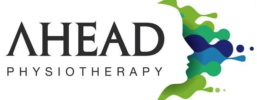The word “migraine” immediately stimulates a certain thought or emotion in most people. To some, it triggers a feeling of dread, as a migraineur (migraine sufferer) who experiences severe symptoms often describes it as a pain as unrelenting and severe as child-birth. To others, the word migraine is used interchangeably (whether technically correct or not) with a more mild-to-moderate head pain.
So what makes a headache a headache? And what makes a migraine a migraine?
Let’s start with the migraine, which the Global Burden of Disease Study 2010 found was the 3rd most prevalent disorder in the world. The International Classification of Headache Disorders, which is widely used to classify different types of headaches, lists migraine with the following characteristics.
Migraine:
- Typically lasts 4-72 hours
- Often one-sided location, pulsating quality.
- Moderate or severe intensity
- Disruption of your routine physical activity due to pain.
- Association with nausea and/or photophobia (sensitivity to light) and phonophobia (sensitivity to sound)
- Recurs (at least 5 of these migraines are actually required to be diagnosed with “migraine”)
- Can occur with or without an aura, which is described as a focal neurological disturbance (eg. spots in vision, speech/language symptoms, sensory disturbances) which then fully resolves.
- Many different types, including migraine without aura, migraine with aura, menstrual migraine, hemiplegic migraine etc..
The cause of migraine is debated. Vascular causes (changes in blood flow to the brain) have been suggested, but in recent times the sensitisation of the central nervous system (CNS) has also been acknowledged as a potential cause. This is significant, as the upper cervical spine (neck) joints are thought to sensitize the CNS, meaning that some migraine sufferers gain relief from treatment to their upper neck area.

Headache:
The International Classification of Headache Disorders lists over 300 different types of headache! One of the most common primary headaches is referred to as “tension-type headache” (other terms used include muscle contraction headache & stress headache). These headaches are typically characterised by:
- typically bilateral (ie. on both sides of the head)
- pressing or tightening in quality and of mild to moderate intensity,
- lasts minutes to days in duration
- The pain does not worsen with routine physical activity
- The pain is not associated with nausea, although photophobia (sensitivity to light) or phonophobia (sensitivity to sound) may be present.
- Head tenderness on palpation of the scalp.
So the differences between a tension-type headache (TTH) and migraine are quite substantial. A TTH tends to be bilateral, whereas migraines are often one-sided. TTH symptoms are mild-to-moderate intensity, whereas migraines are associated with severe pain. TTHs can last less than 72 hours, however can last up to 7 days, whereas migraines typically do not last more than 3 days duration.
We hope that this overview helps to clarify the terms “headache” and “migraine”. As practitioners, we certainly hear people attending our clinic complaining of bad headaches when they are actually experiencing migraines, and conversely a lot of people complain of “migraines” which are actually more likely to be TTHs.
The fact that the International Classification of Headache Disorders lists over 300 different headache types is an indication that the exact diagnosis is often very difficult, and in reality a lot of people experience an overlap of different headache types.
For a more complete classification of migraine disorders, see the International Classification for Headache https://www.ichd-3.org/1-migraine/.
For further reading on the potential involvement of the neck (cervical spine) in many headache disorders, including “migraine”, see https://watsonheadache.com/.
If you are experiencing headaches and would like a thorough physiotherapy assessment of your neck, which is often a contributing factor in a lot of headaches, you can book an appointment
with one of our experienced Physiotherapists here: http://auappts.gensolve.com/aheadphysio.
